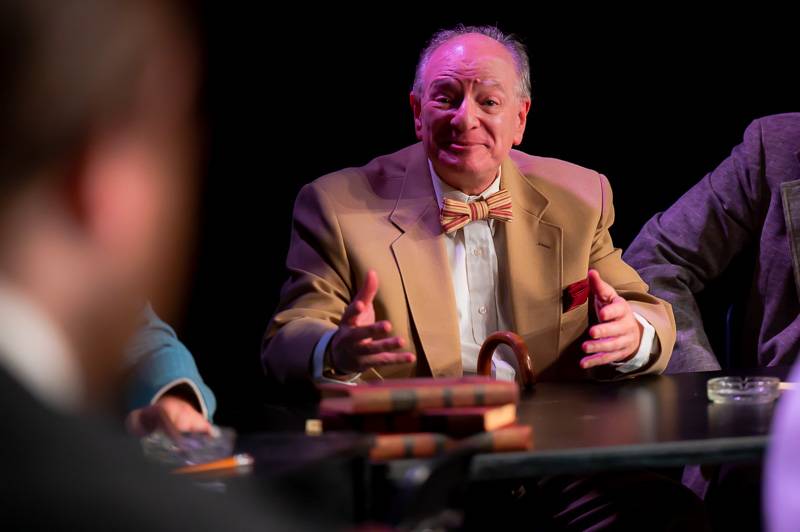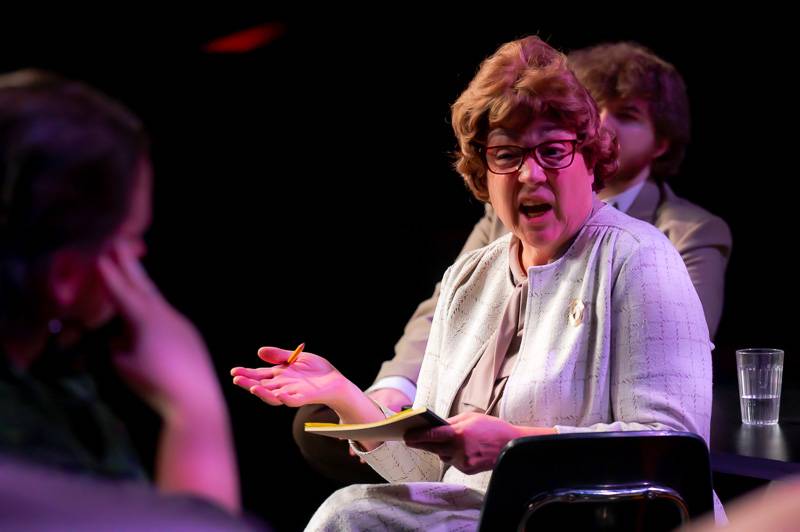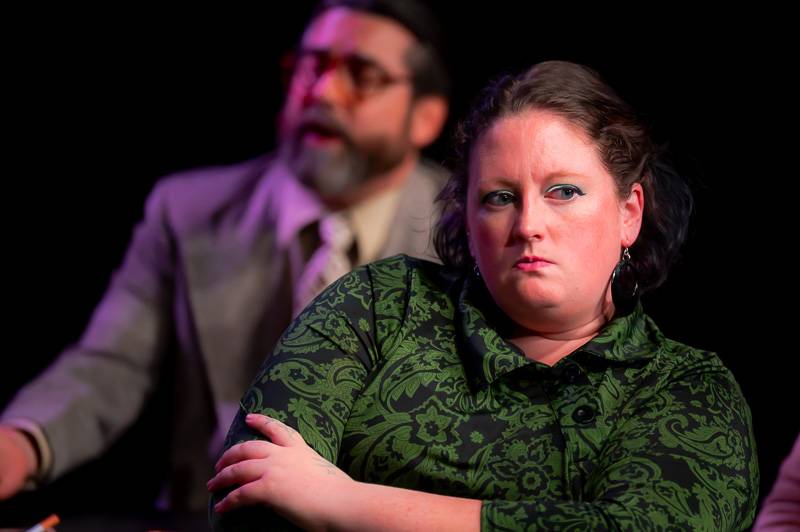
Photo by Howard Owens.
A simple plot -- 12 ordinary people deliberating the guilt or innocence of a young man accused of murder -- became a riveting drama on Sept. 20, 1954, when it first aired on CBS's Studio One.
In the 1950s, women couldn't serve on juries, so the title was to the point: 12 Angry Men.
A lot has changed over the past seven decades. Women have been able, for example, to serve on juries for decades, so now the play is called 12 Angry Jurors (12 Angry Men was also an award-winning movie in 1957 starring Henry Fonda).
And a lot hasn't changed. Not all is equal just yet. Society is still beset by prejudices, and people still have biases and personal histories that color their views of events.
So juries can still sometimes find it hard to agree on a verdict.
That's why the play originally written by Reginald Rose is still performed all over the country, is taught in schools, and is the subject of scholarship.
"It's still relevant," said Director Kristy Walter. "It's like one of those timeless plays that speaks to justice, it speaks to humanity, it speaks to people's prejudices and biases. And that's, I think, what makes it so compelling because when you watch the play, you see yourself in those characters. So I think that's what makes it worth seeing."
The first Batavia Players performance is at 7:30 p.m. on Friday, followed by 7:30 p.m. on Saturday, and 2:30 p.m. on Sunday.
The play begins with an off-stage charge from a judge in a murder trial: The jury must reach a unanimous verdict.
Once in the jury room, Juror #7 (the jurors are only identified by their numbers until the close of the play), played by Teressa Hirsch, says, “Yeah, lets vote. Who knows, maybe we can all just go home.”
She has someplace else to be, she reveals.
And the vote? It's 11-1. Not unanimous.
The lone holdout, Juror #8, played by Steven Coburn, confesses, “It's not easy for me to raise my hand and send a boy off to die without talking about it first.”
The jury decides it's up to them to convince him why they are right -- that the young man on trial stabbed his abusive father and killed him. A guilty verdict would send the kid, from an impoverished background, to the electric chair.
The disagreements erupt for the jurors to confront their own morals and values, their own histories and beliefs.
You can probably guess the resolution -- if you've never caught the movie on late-night TV -- or better, no matter how well you know the story, you can join Batavia Players at 56 Main Theater this weekend to see how it plays out. The play holds up over decades of changing cultural norms and multiple viewings.
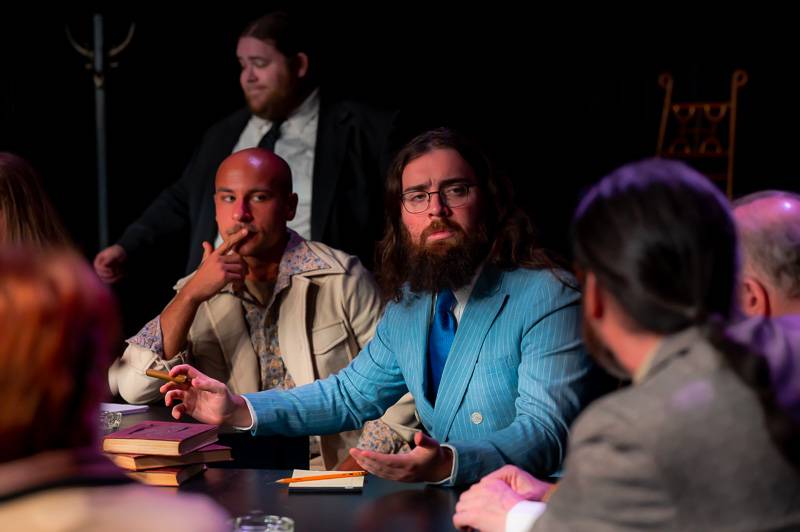
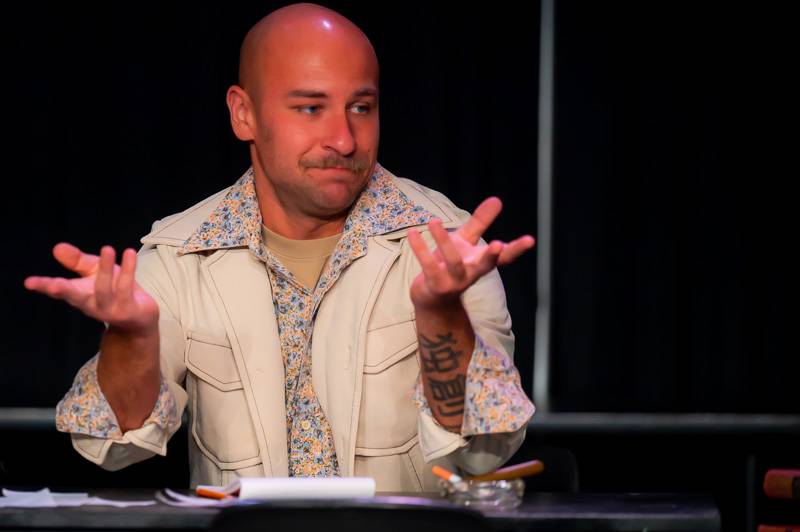

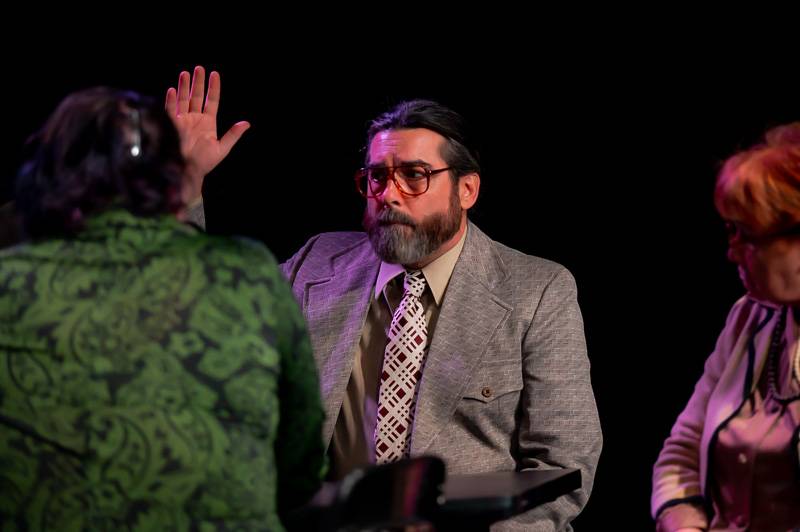
Photo by Howard Owens.

